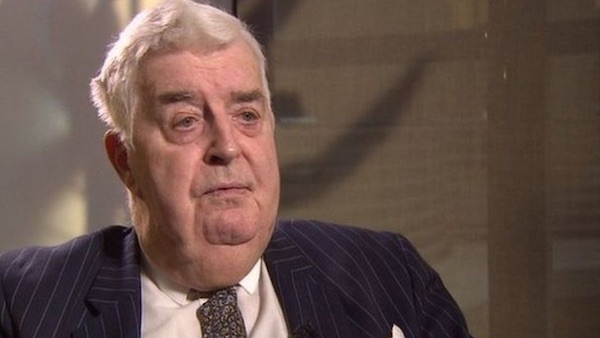
By Gerry Adams (for Leargas)
In the cut and thrust of negotiations there is always the risk that someone will say something that makes the process of achieving agreement more difficult. Sometimes they do that deliberately. Sometimes they are just stupid. Or tongue in cheek. During the negotiations leading to the Good Friday Agreement in 1998 the Ulster Unionist politician John Taylor famously dismissed proposals from Senator George Mitchel saying he wouldn’t touch them with a ‘40 foot barge pole’. Taylor was renowned for such hyperbole.
Last week he was at it again claiming that nationalists in the North ‘are not equal’ to unionists. He wasn’t alone in making outrageous and stupid comments. The morning after the DUP leader Arlene Foster made, what some in the media described as a ‘new offer’ and a ‘compromise proposal’ to Sinn Fein, her Westminster colleague Sammy Wilson was in fine ‘Taylor mode’. He said: “They (Sinn Fein) are not a serious party... we now have the spectacle of a party with seven MPs who don’t go to their work and 27 MLAs who won’t go to their work - why on earth would anyone vote for such a bunch of malingerers.”
That’s Sammy doing what he does best. Messing. His problem of course is that more and more people in the North are voting for Sinn Fein, as evident in the Assembly and Westminster elections earlier this year.
More crucially, Arlene Foster’s ‘new offer’ - her ‘compromise’ proposal was nothing of the sort. It came during a period when Michelle O Neill was exploring the potential of the next phase of talks with other leaders, including Arlene and the two governments. The same proposal, that Ministers be put back in place while negotiations continue in parallel, was suggested by DUP negotiator Edwin Poots in June and raised some weeks ago by his party colleague Simon Hamilton. It was rejected then and Arlene Foster knew it would be rejected last week. It wasn’t a serious effort to resolve the crisis.
And when you think about it why would Sinn Fein agree to go back into power sharing with the DUP with no agreement in place? On the vague possibility of possible legislation that may or may be agreed by a DUP party which thus far has shown no real desire to agree. And if it doesn’t work we pull the whole edifice down again. That’s not a recipe for progress, but for disaster.
In addition, as it has tried to put the blame on Sinn Fein for the current crisis the DUP, and elements of the media, have claimed that Sinn Fein doesn’t really want to be in the power sharing institutions. They accuse us of not wanting to have to manage the mess that Brexit is already creating for the economy of the North, and in particular for our rural and farming families, and for those living on both sides of the border corridor. They also say that being in government in the North undermines our political project in the South.
This is patent nonsense. From the time of the Good Friday Agreement Sinn Fein’s political strategy has been built on the need for an Executive and Assembly and all-Ireland institutions. For almost 20 years we have worked to ensure that these are viable and effective. For ten years - first with Ian Paisley, then with Peter Robinson and latterly with Arlene Foster, Martin McGuinness stretched himself and our party to keep the institutions in place through the most difficult of circumstances. Martin’s decision in January was reluctantly taken.
It is also a fact that Sinn Fein’s electoral fortunes in the South are assisted by an Executive and Assembly in place.
In the Oireachtas our political opponents, especially the Fianna Fail leader Micheal Martin, cynically exploit the absence of the institutions to attack Sinn Fein. Martin doesn’t care that the status quo continues to discriminate against nationalists; or that Irish speakers are being treated as second class citizens; or that commitments in Agreements, which a Fianna Fail government of which he was part, have not been implemented; or that LGBT citizens in a part of this island do not have the right to marriage equality. Martin’s only interest in the current crisis is to exploit it in his electoral battle with Sinn Fein in the South.
So, let me be very clear. Sinn Fein is fully committed to the power sharing institutions agreed in the Good Friday Agreement. However, the institutions can only work if they are based on equality, respect and integrity.
Last week’s proposal by the DUP Leader Arlene Foster for a parallel process did contain a welcome acknowledgement that the Irish language threatens no one. The crocodiles will be delighted to hear that. And she did include a promise of legislation. This is welcome also. But more than soft words are required. So, to ensure there is no misunderstanding let me repeat what I said last week. There will be no return to the Assembly or Executive without a stand-alone Irish Language Act and the resolution of the other outstanding issues.
![[Irish Republican News]](https://republican-news.org/graphics/title_gifs/rn.gif)
![[Irish Republican News]](https://republican-news.org/graphics/title_gifs/harp.gif)

